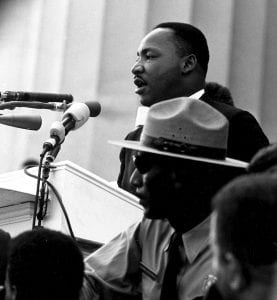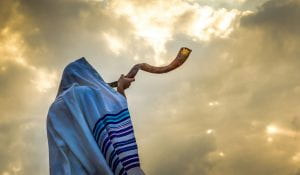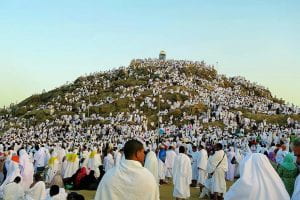 “What a blessing to be a member of a Community because each individual shares in the good that is done by all!”[i]
“What a blessing to be a member of a Community because each individual shares in the good that is done by all!”[i]
When considering the continued vibrancy and sustainability of DePaul’s mission—especially in the context of the upcoming Thanksgiving holiday— I like to think of the image of a potluck dinner in which each member of a family or community brings their special dish to the common table. Almost miraculously, a feast of widely varied food results, and there is always more than enough for everyone to leave satisfied. The legendary children’s story, “Stone Soup,” echoes a similar wisdom.
As we approach Thanksgiving, we are naturally encouraged to reflect on the place of gratitude in our lives. Especially during a difficult time, making space to feel and express gratitude is beneficial to our psyche, to our relationships, and to our overall feeling of well-being. We feel more wind at our backs in recognizing the many gifts we have received, especially those not of our own making that came to us through the generosity of others or through the surprising and unmerited blessings of our lives.
The flip side of gratitude for gifts received is to share them generously with others. The flow of receiving and giving freely is one of the great spiritual insights at the heart of many religious traditions, including the Catholic Christianity which formed Vincent de Paul, Louise de Marillac and so many of our beloved Vincentian saints of history and contemporary companions on the journey. Simply put, this insight is the ongoing invitation to receive graciously and then to share generously from what we receive.
One way to imagine the spiritual transformation of Vincent de Paul is to note that once he realized the calling to devote his energy and commitment to serve society’s poor, it became clear to him that this mission was well beyond what he was capable of doing on his own. He understood that only a community of people formed and gathered for this shared mission could accomplish such a massive undertaking. Framed in this way, the emergent mission of Vincent de Paul carries with it an important truth of the Vincentian spirit and one that he carried forth in his work and ministry for the remainder of his life. That is, the effectiveness and sustainability of this mission he envisioned was dependent on how a community could be effectively formed, motivated, and guided to contribute toward achieving it together, collaboratively. This truth becomes a helpful lens through which to interpret much of Vincent de Paul’s life and ministry and the Vincentian tradition that followed.
At DePaul, we are fond of calling ourselves “a community gathered together for the sake of the mission,” a modern translation of the name Vincent de Paul gave to the religious community he founded, the Congregation of the Mission. One of Vincent’s important insights was that this mission can be effective and sustained only when the gifts present in individuals who make up the community are shared freely and generously in its service.
As you reflect on the many gifts present in your own life during this Thanksgiving season, pause also to recognize the gifts, talents, and resources that you have to offer to others. Begin with what has been given to you in your life and has helped to shape the person you have become, but consider also what you, in turn, can generously share with others in the communities of which you are a part, including our DePaul University community. Only through such sharing will our common mission flourish.
This Thanksgiving season may an abundance of gifts flow freely both into your life and outward from you into the different communities of which you are a part!
Reflection by: Mark Laboe, Associate Vice President, Division of Mission and Ministry
[i] Conference 1, Explanation of the Regulations, 31 July 1634, CCD, 9:2. Available at: https://via.library.depaul.edu/vincentian_ebooks/34/.
Inspired by Joy: A Day with Vincent Program (Wednesday, December 15th)
“We must be full reservoirs in order to let our water spill out without becoming empty, and we must possess the spirit with which we want them to be animated, for no one can give what he does not have.” Vincent de Paul
Fill your reservoir before the holiday break with a morning retreat grounded in our Vincentian mission and interfaith wisdom. Reconnect with what brings you joy…the greatest gift you can offer to those around you!
You can participate in two ways:
- Join us in person: 9:00 am – 1:00 pm, including breakfast, lunch, and some fun surprises (LP Student Center 314)
- Join us virtually: 9:30-11:00 am (Zoom)
Register now at: https://december-day-with-vincent.eventbrite.com








